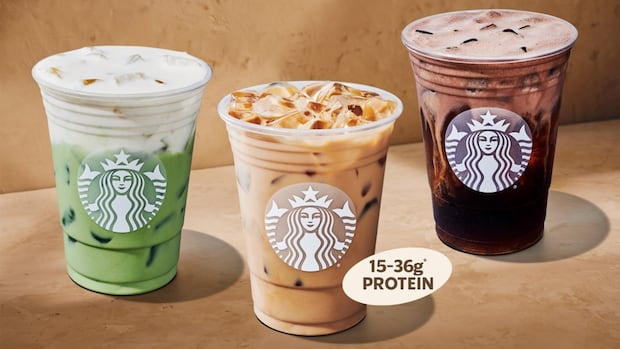The protein trend continues to expand into various food categories, with cereal, chips, ice cream, popcorn, and even candy now boasting protein-rich options. Adding to this wave of protein-infused products, Starbucks will soon introduce a range of protein-enhanced lattes and cold foam starting September 29 at its U.S. and Canadian locations. These new offerings are designed to deliver between 15 and 36 grams of protein per serving.
Tim Horton’s recently joined the protein bandwagon by launching its own protein-packed latte featuring a high-protein, lactose-free dairy beverage that provides 17 to 20 grams of protein per drink. The rising demand for high-protein diets, fueled by health-conscious individuals and fitness enthusiasts looking to boost their protein intake conveniently, has led to the proliferation of protein-enriched products across the market.
Retail analyst Bruce Winder highlights the booming protein market, which is currently valued at billions of dollars and growing at a rate of approximately seven percent annually. He anticipates that Starbucks and Tim Hortons will benefit financially from these protein innovations, as consumers are willing to pay extra for such added features. While the pricing for Starbucks’ new protein offerings remains undisclosed, Tim Hortons’ protein drink is priced at $4.49, compared to $3.69 for a regular latte, with an additional 80 cents charge for adding the dairy protein beverage to other drinks.
The marketing strategy for these protein products mirrors past trends like low-carb or sugar-free products, which experienced periods of growth before eventually plateauing. However, some experts believe that the high-protein category might have more staying power due to the essential role of protein in a balanced diet. David Pullara emphasizes the importance of taste, composition, and pricing in determining the success of these new protein items in a saturated market.
Despite the protein frenzy, dietitian Melissa Fernandez cautions against glorifying high-protein diets, citing misinformation and exaggerated protein intake recommendations. While protein-enriched products may appear healthier due to their protein content, they may contain added sugars or undergo heavy processing, potentially undermining their nutritional value. Fernandez stresses the significance of a balanced diet and warns of the potential health risks associated with excessive protein consumption without adequate intake of essential nutrients.
As the high-protein trend persists, Fernandez predicts that it will evolve into new forms in the future, adapting to changing consumer preferences while maintaining its presence in the market.



